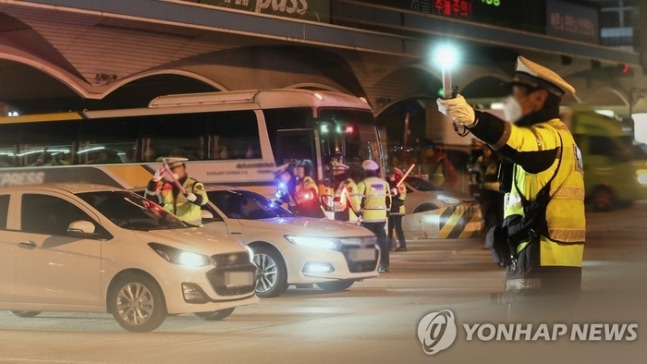
The level of punishment for drunk driving has been strengthened, but it is still necessary to discuss the high repeat offender rate, according to a report from the Samsung Fire & Marine Insurance Traffic Safety Culture Research Institute on the 23rd.
Since the implementation of the Yoon Chang-ho Law in 2019, which focuses on strengthening punishment for drunk driving, the average annual repeat offender rate for drunk driving from 2019 to last year was 43.6%. This is a similar figure to 2018 (44.7%) before the implementation of the Yoon Chang-ho Law.
The number of drunk driving accidents decreased by about 24% from 10,747 cases in 2020 to 13,342 cases in 2023. However, the number of drunk driving violations only decreased by about 4% from 137,720 cases in 2019 to 131,500 cases in 2023, indicating minimal effects of the legal amendments on reducing drunk driving.
The research institute suggested the need for measures such as strengthening punishment for those who aid drunk drivers. In Japan, although the level of drunk driving regulation is similar to Korea, there is a clearer legislation that penalizes not only the driver but also individuals around them for aiding drunk driving, leading to a higher awareness of the consequences.
In Japan, those who aid in drunk driving, such as providing vehicles, passengers, or alcohol, can be sentenced to up to 3 years in prison or fined up to 5 million yen (approximately 43 million won) if caught aiding a drunk driver.
Yu Sang-yong, a researcher at the Samsung Fire & Marine Insurance Traffic Safety Culture Research Institute, pointed out the need to improve the system by enhancing penalties for those aiding drunk driving and establishing mandatory installation of devices to prevent drunk driving in order to establish a culture of eradicating drunk driving.

